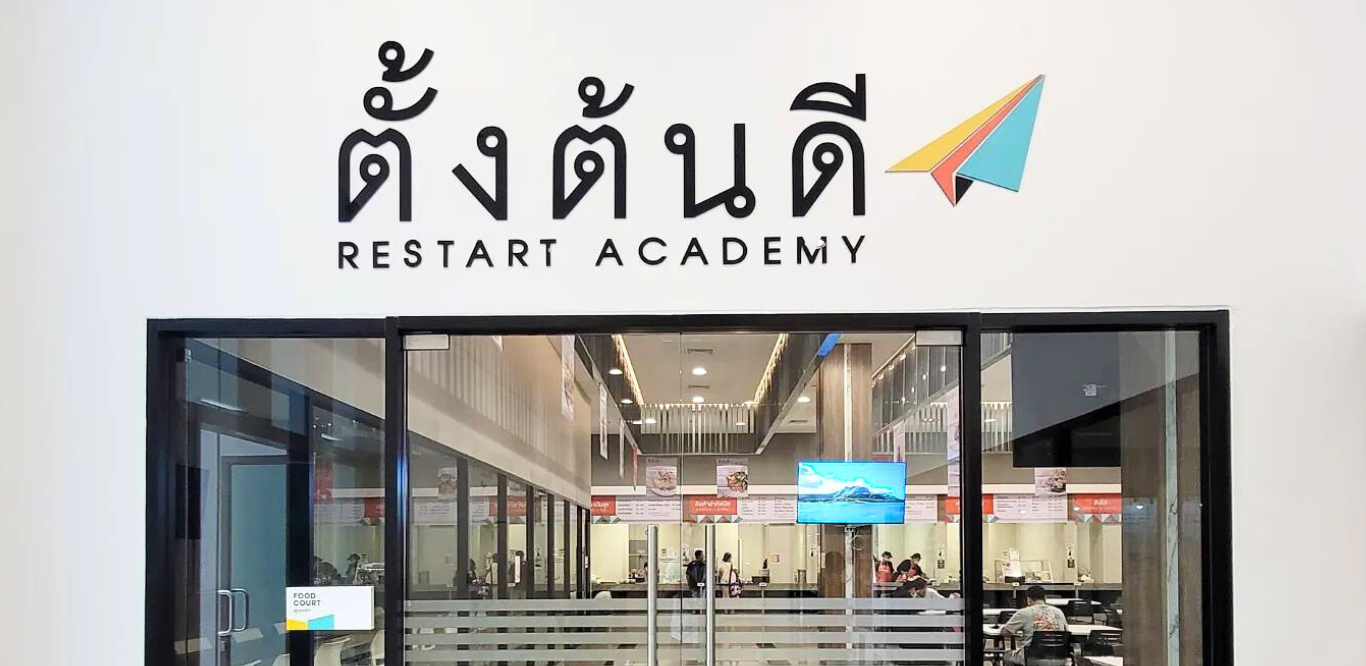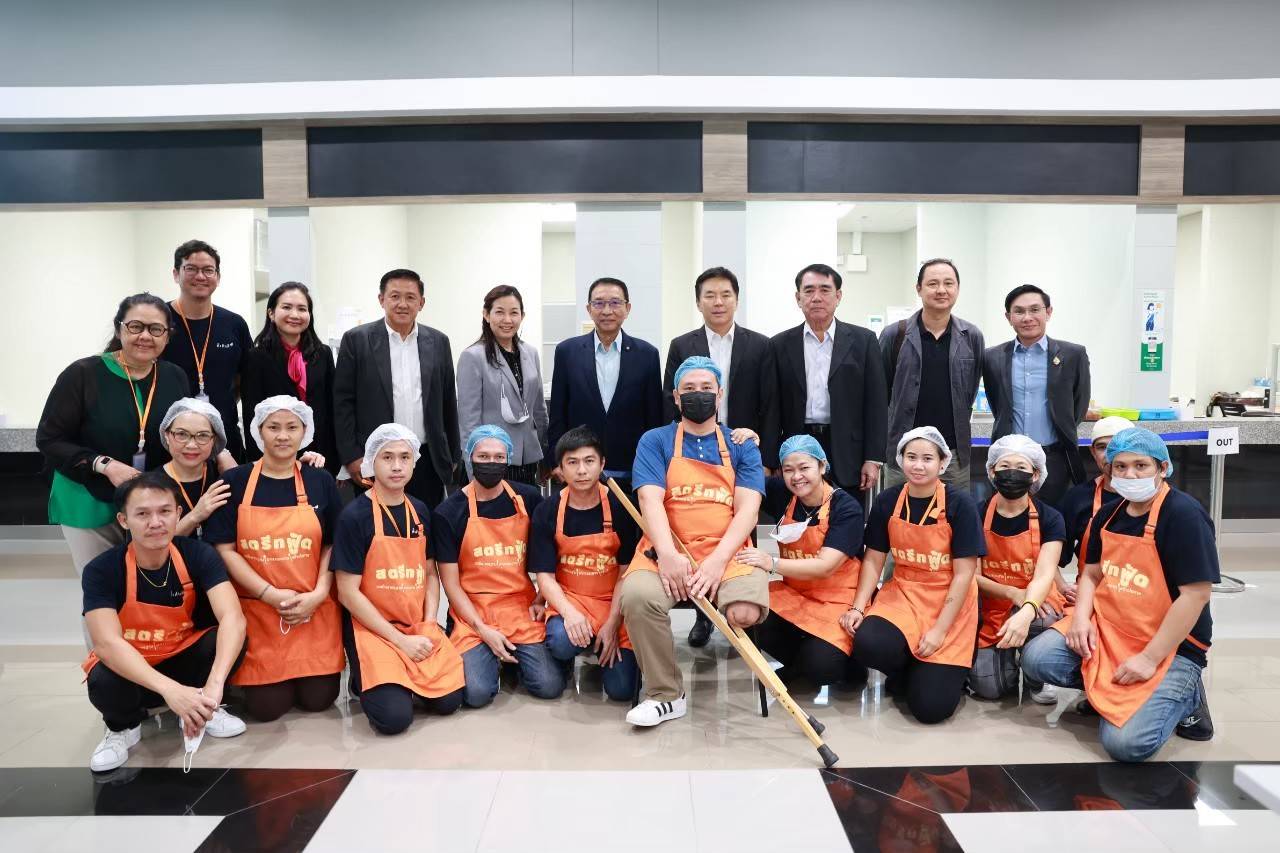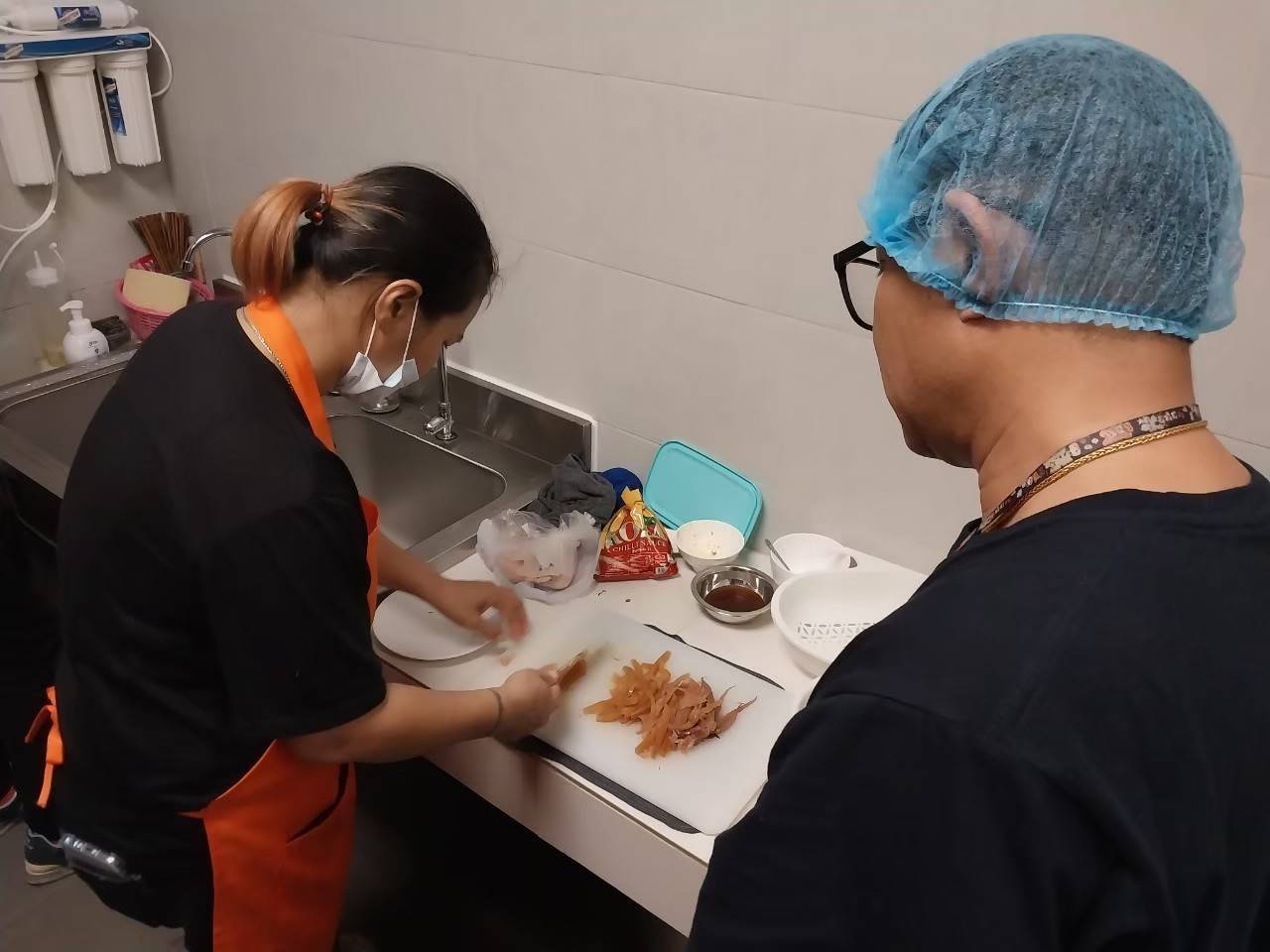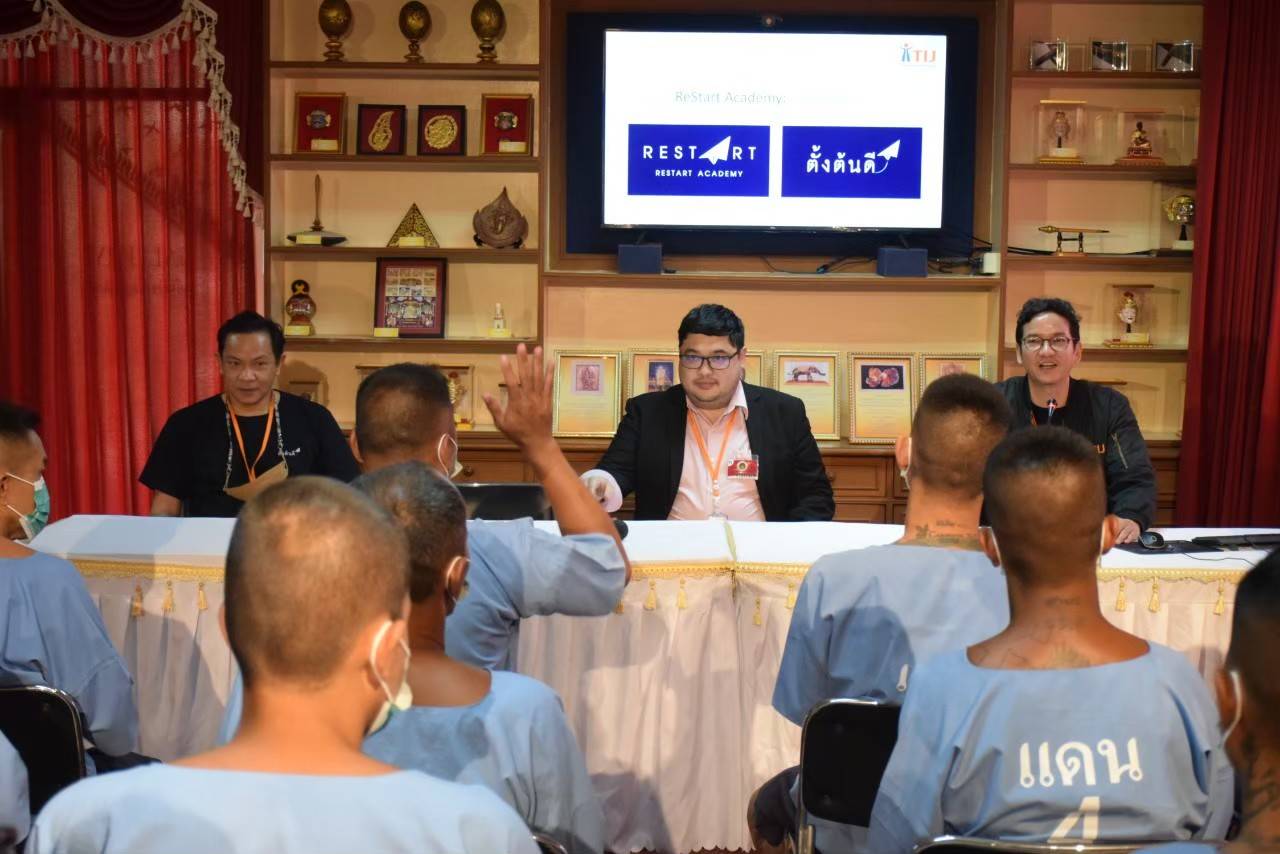ฺBehind the scenes of Restart Academy
As we take our first step into the new cafeteria called "Restart", we are greeted by vibrant flags and pictures of delicious, appetizing meals. The cafeteria is bustling with people during the lunch break, each person choosing to explore the well-organized and visually appealing food options. If you were to glance around, you might not even realize that the owners and chefs serving the food have previously served time in correctional facilities. They are now getting a significant opportunity in their lives, turning their backs on a cycle of repeated offenses and embracing a fresh start.
Giving chances to individuals who have made mistakes is one of the best approaches to prevent and reduce crime in society. Looking at the statistics from the Ministry of Justice's Recidivism Statistics Database for ex-offenders between 2019 and 2021, it was found that 1 in 3 individuals released from prison would reoffend within three years.
The factors that lead them back into a vicious cycle with seemingly no way out are the difficulties in readjusting to life in society after experiencing restricted freedom through their sentence. They also face endless stigmatization from the outside world. The vocational training and life skills development offered within the prison walls do not fully break down the negative barriers created by some members of society.
However, "Restart Academy” – a new sandbox project of TIJ aiming to support the reentry process for people who are released from prison, could be another stepping stone that helps them overcome those barriers. It serves as a testament to the hard work behind the scenes by a dedicated team that combines science and art to shape and establish this unique cafeteria. Today, TIJ Newsletter ventures into the heart of "Restart Kitchen” to delve deeper into the story. Khun Thanachai Suntharavet, also known as "P'Mek," Senior Manager, Social Partnership and Public Engagement at the Thailand Institute of Justice, the project’s manager has come clean to us about this project.
How did the project for the Restart Kitchen begin?
In the past, TIJ has been involved in assisting with training and skill development for prisoners, such as the Hygiene Street Food project, which was done in collaboration with other organizations. When we moved our office to Chang Wattana Road, we saw a great opportunity to utilize the showcase building's cafeteria as “Restart Kitchen”. We recognized the cooking skills of the former prisoners and saw the potential to develop this space into a prototype reintegration school those released from prison, teaching them various vocational skills and life skills for successful reintegration into society.
To establish the “Restart Kitchen,” we reached out to various restaurant owners who were known for their generosity and willingness to give people opportunities. This led to the participation of restaurants such as Jong Fried Pork, Halal Pan-Suk by Nada (a noodle shop), Ab Zab Restaurant (a Som Tam Restaurant), and Hom Mali Restaurant. One of the owners, Phoemporn Maneesin, Khun June, who owned Hom Mali Restaurant at Chamchuri Square, showed interest in joining the project based on the conditions we provided for former prisoners. Khun June visited the women's correctional facility in Chiang Mai to see how we operated. Impressed by the initiative, Khun June offered to become a project consultant.
Challenges of establishing the "Restart Kitchen"
From the beginning of the project, the main challenge was finding restaurant owners who were willing to give former prisoners a chance. Initially, we set a goal to provide a daily wage of 350 baht to each person. Additionally, each restaurant owner was ready to provide training for the prisoners before they started working. However, as we assessed the location, Jeh Jong, who was one of the first to visit, expressed concerns about the feasibility of attracting people to work solely based on wages. To overcome this, we decided to divide the income by offering a monthly salary of 10,000 baht and distributing additional dividends from the restaurant's revenue. This way, the participants in the project would have a sense of ownership and motivation to be a part of it.
With "Restart Kitchen," our focus goes beyond just culinary skills. We strive to uplift the life skills of individuals reintegrating into society after incarceration. One of the challenges we face is crisis management. It's important to address issues like drug addiction relapse or debt problems that participants may encounter. To tackle this, our program builds trust by encouraging participants to confide in us when they make mistakes. We then provide tailored assistance based on each individual's situation.
From the first phase to the present, we have achieved significant success.
Within just one week of starting the Kitchen, we noticed a higher-than-expected number of customers. We attribute this to our competitive pricing and the improved culinary skills of our team, resulting in delicious and standardized food. In addition to running our own establishment, we have expanded our services to cater for events in office buildings nearby. As the Ministry of Justice plans to renovate their cafeteria, our customer base is expected to grow further.
However, the most important aspect is the personal growth and transformation of our participants. We have witnessed a clear change in mindset and self-image. Let me share some success stories of individuals who have transformed themselves through our program. Several participants had been actively seeking employment without success until they joined our project. We provided them with skills training akin to a personalized screening process. Spending three months with us helped us understand their lives, limitations, and individual needs.
For instance, some of our participants have now found employment at Hom Mali Restaurant. One individual was even given an opportunity to work at a well-known Chinese restaurant. TIJ has consistently supported their aspirations, including helping them find suitable locations to open their own businesses, if they wanted to. We are committed to providing full support as mentors, accompanying them for 3 to 6 months. Furthermore, we aim to retain individuals with a strong commitment to serve as mentors for future participants joining our program.
Next phase of the Restart Academy
Our next phase for the Restart Academy is to create a space that offers opportunities not limited to just food establishments, but also other vocational skills. We envision incorporating beauty salons, spas, and hair salons in the space behind the TIJ building. To achieve this, we are partnering with other organizations to provide additional training courses. Furthermore, we are committed to offering Digital Workforce programs specifically designed to empower marginalized children in training centers. These programs will include coding lessons integrated into gaming.
What is the ultimate goal for the Restart Academy?
Ultimately, we aspire for the Restart Academy to become a social enterprise—a venture that contributes to society while generating profits. We want it to serve as a model school that others can emulate, creating a foundation for their own business endeavors. Additionally, we aim to establish a school that attracts high-quality personnel to work and contribute back to the community. By doing so, we can ensure that the benefits we generate are reinvested into society.
21/06/2023











